[Want to get your hands on a copy? Wavelength gets delivered straight to your door either as a single edition or annual subscription. Our subscription packages include a free gift and along with plenty of other benefits, subscribers get their copies of Wavelength before anyone else.]
For issue 265, Ben Mondy sat down with Chris Burkard to talk about his early life in California’s eternal summer, and his recent move to, and connection with, Iceland. A country whose wild spaces and shifting seasons have been pivotal in Chris’s photographic journey.
Chris Burkard is an accomplished explorer, photographer, creative director, speaker, and author. He started his career as a surf photographer before expanding his travels and imagery to the farthest expanses of Earth. He is known for his work that inspires humans to consider their relationship with nature while promoting the preservation of wild places everywhere.
Layered by outdoor, travel, adventure, surf, and lifestyle subjects, he is best known for his images punctuated by untamed, powerful landscapes. Through social media, Chris strives to share his vision of wild places with millions of people, and to inspire them to explore for themselves. A large chunk of his work is done in Iceland, a place he first visited in 2005 and where he has returned to each year since.
Burkard grew up in Pismo Beach, in Central California, located roughly halfway between Los Angeles and Santa Cruz. He and his wife Breanne have two sons, Jeremiah and Forrest, who all lived on the ranch next to Burkard’s production studio and art gallery, not far from where Chris grew up. After spending months of each year in Iceland, Chris and the family moved there to live permanently in the summer of 2023. Not long after Wavelength caught up with him in his new house in Reykjavik to talk through his career, his motives and specifically, what the theme of connection means to him.
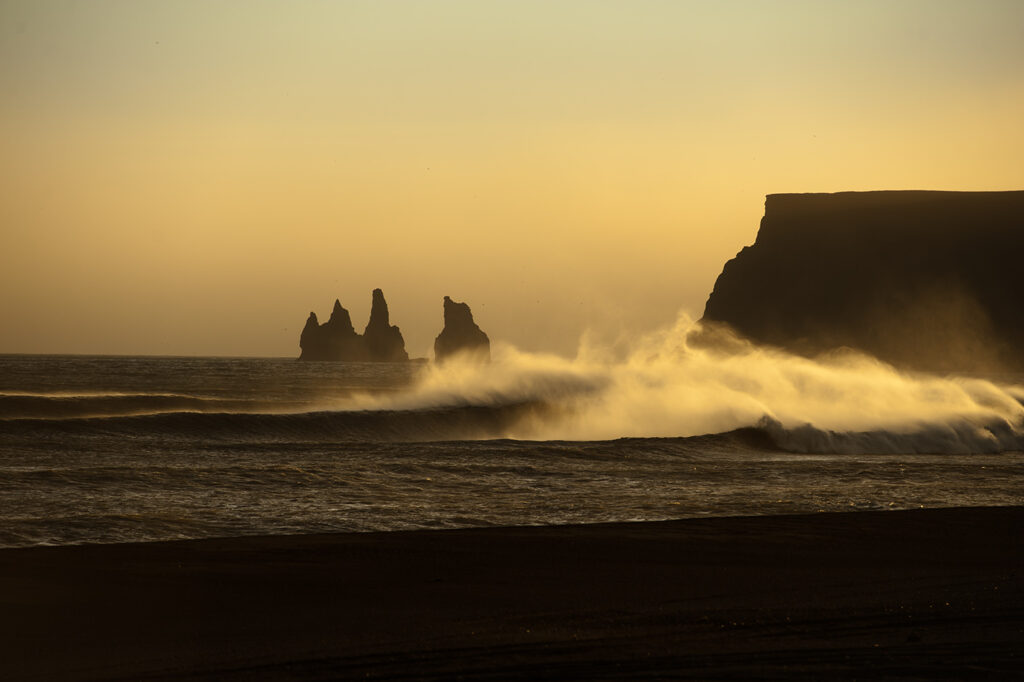
WL: The theme for this issue is connection. So, it’s a big question, but what does connection mean to you, and how does it play out in your life?
CB: I think connection is more than just being born somewhere. It’s more than just having a history. I’ve been somebody who’s travelled quite a bit around the world, and I’ve often found a connection with somebody I’ve just met, or a place I’m visiting for the first time.
So, I think it’s about finding a place where you can feel growth happening. That usually happens when you think of things differently or see yourself differently. At its deepest, it can inspire you to live differently.
For me, it’s all about growth and connecting with the deeper part of oneself that needs constant evolution. And I think that’s what human beings, whether we want to admit it or not, crave. We crave interaction with landforms, with people, with experiences that help us to get outside of our kind of routine and allow us to expand our vision of the world.
And what are the signs when that’s happening? Is there a spark where you start to feel a real connection starting?
I would say that the signs for me are usually internal. It’s more about learning to hear what your body or your mind is telling you. Those signs can vary dramatically depending on where you’re going, or what you’re doing or what you’re getting up to. I guess one of the main signs for me is my level of distraction. Nowadays we are so distracted, right? We’ve got all this stuff that can occupy your mind. If I’m in a place where I can be completely involved with that experience or a landscape where I am motivated and inspired, that’s a sign. That’s a signal that I’m in the right place or I’m heading to the right place. I think that when I work on projects where I feel compelled to get out of my sleeping bag when the weather’s freezing and it’s brutal outside, or my skin is cracking, and all that stuff, those are the projects that I want to work on. That’s when I feel the best version of myself. The most creative. The most willing. On the flipside, when I’m on an assignment or in a location where I just can’t be bothered and want to stay in bed, or I’m missing home or whatever it is, I think that’s a sign that you’re not being stimulated emotionally.
And to further that idea it’s so important as a creative person to work on projects that you feel passionate about. Passion, to me, means you’re willing to suffer for that experience. You’re willing to kind of give yourself and not phone it in. Am I going to go the extra mile? Am I going to work harder to foster a relationship with a place or a person? That’s the type of connection I strive for.
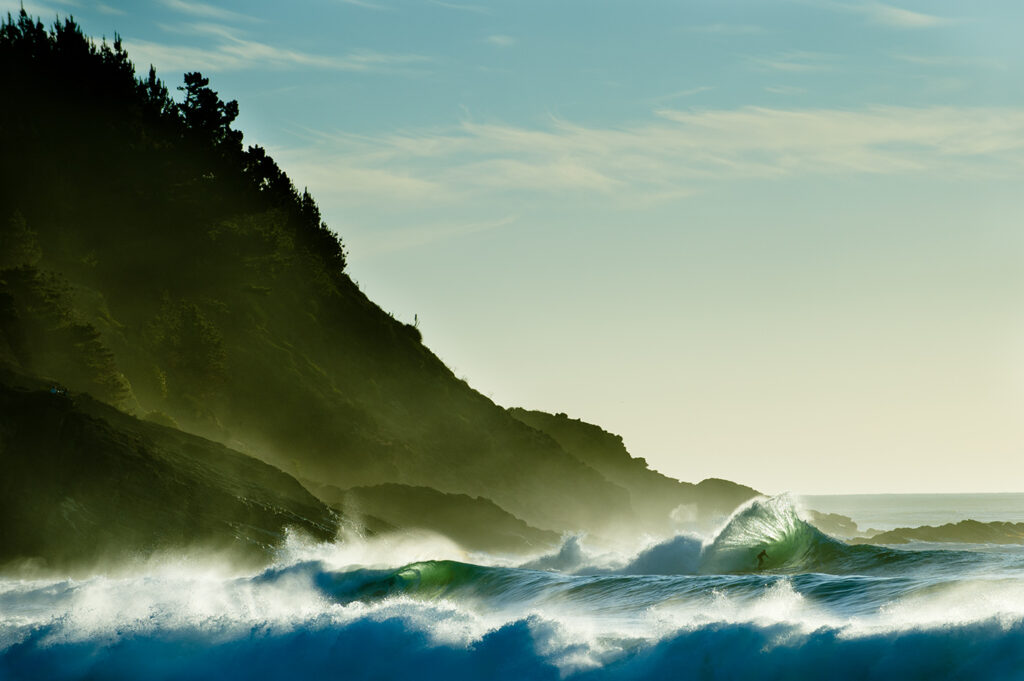
You formed that type of connection with Iceland a long time ago. You’ve taken it further and decided to live there year-round with your family. How has that connection changed over time? Has it still got the capacity to surprise, or is it a deeper, more settled kind of feeling now?
In the beginning, Iceland was so new, interesting and exciting. I’ve long felt that travelling is a lot like a drug. It’s like a dopamine hit. Every time you get off the plane you’re just overwhelmed. You are using your camera all the time, shooting out the window at 60 miles an hour, things going by and everything’s happening so fast and exciting. That’s an incredible feeling. However, there’s something special about when that slows down. You start to take in the details, the small things, right?
And I think with Iceland, that’s sort of what began to happen for me. I started to appreciate the fine details. Once the novelty wore off, I realised that it is a really great place that makes me happy and gives me joy. And I’m not gonna lie to you, it’s not perfect. I grew up in California, and California leaves a strong impression on a kid when you can surf every day. But from the perspective of somebody who is inspired by wide open places and open spaces, I feel moved here. I feel compelled to be here. And, I think that that is critical for a parent, somebody who wants to raise kids and do it in an environment that is healthy and safe. So again, it’s not just about me and my pursuits, because if it was just me, I would be living out of my suitcase and travelling around the world.
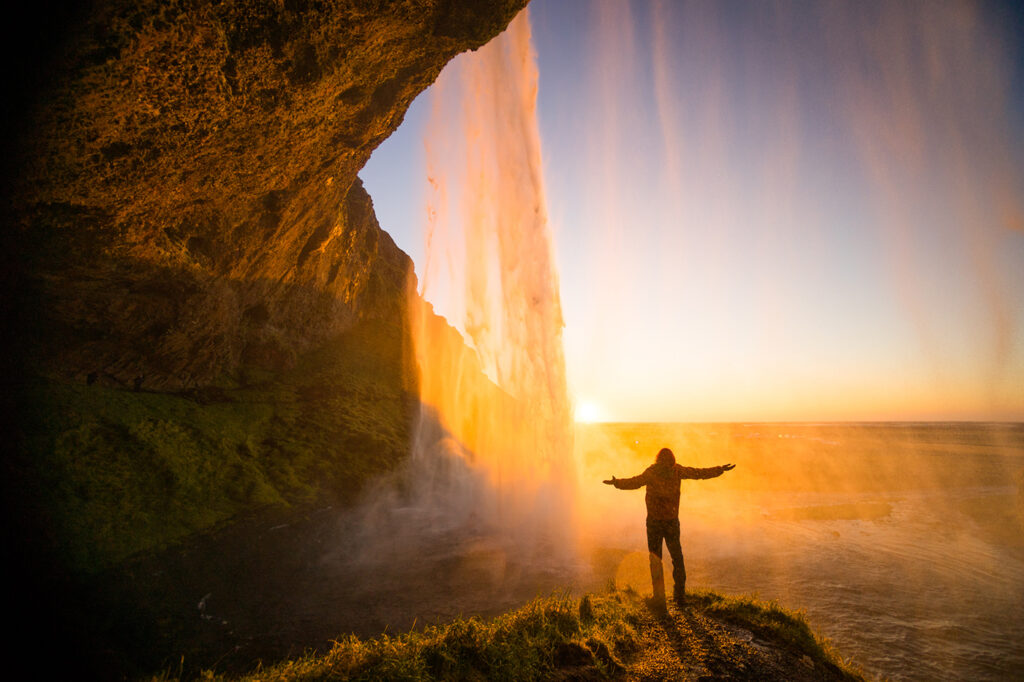
How is it watching your kids investigating a space you have developed such a connection with?
Yeah, I mean, they’re figuring it out. It’s interesting when it comes to kids because I don’t think I ever fully comprehended how much we are asking of them to move to a new place. For me, learning one of the hardest languages in the world, it’s something I look forward to when I have time, but I’m not forced to do it. For them, it’s survival. They have to do it, or else they’re not gonna make friends, they’re not going to connect. And so, it’s interesting to see the sacrifices that they’re making to make this work. And although I’m sacrificing things myself, I think that what I’m realising is that as a family, we’re growing together and we’re having this new experience. And I never had that experience as a kid. I stayed in the same town my whole life. Now I’m kind of figuring out something new. I’m trying to learn, see what this opportunity can provide; which is a lot of different life lessons and a lot of different skills and tools and things that hopefully will benefit them later on.
So, ultimately, I don’t fully have the answer. But it would feel hypocritical to say things like, “Oh, you need progression in your life, or you need to live outside your comfort zone, yada yada yada yada,” when I was living in the place I grew up. But when that place became uninspiring and it started to become comfortable, it was time for change. So that’s what I’m doing over here. I’m trying to practise what I preach.
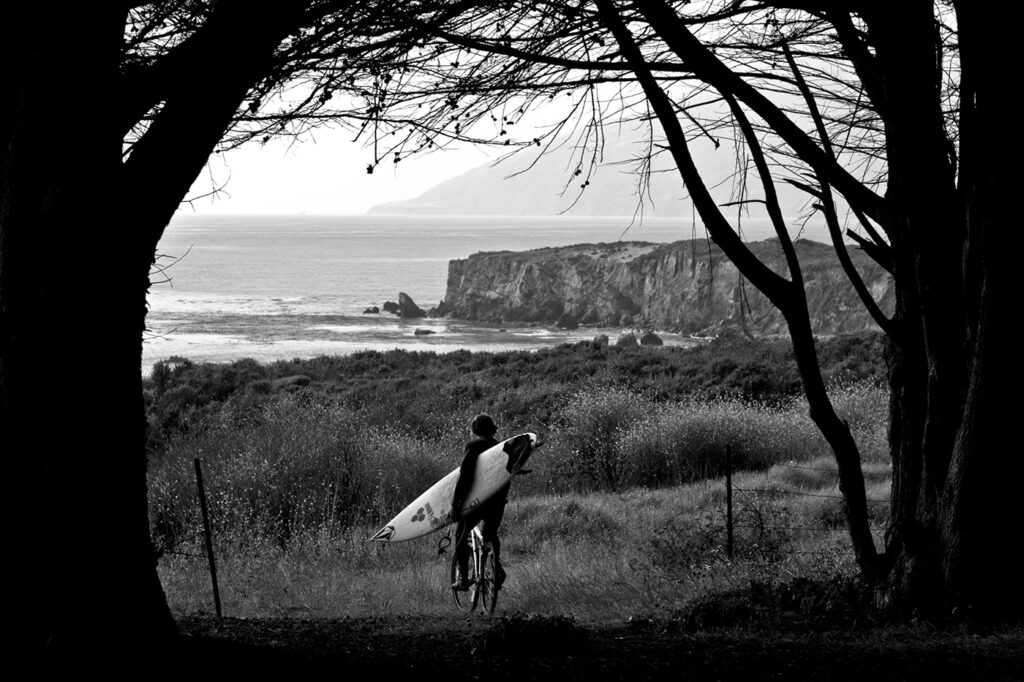
Although you are known for your incredible landscape imagery and for bringing that sense of natural wonder to a lot of people, what we don’t always see is that sense of community and sense of living with people. How important is the social fabric side of when it comes to making connections?
It’s the most important aspect of it. That’s why I’m here. It’s the people in the places that keep you in a place, and keep you inspired and passionate about that location. I think that isolation and desolation are great, and you find that in a cool landscape and whatnot, but does that sustain you? Does that sustain your family? No, it totally doesn’t. You need people that make you feel you’re at home and friends you can go and create new experiences with. And to be honest, that’s why a big community loses its edge. Over here it doesn’t feel like you are in a massive cesspool where everybody forgets about one another. I think that there’s something special about the Icelandic community. Despite people’s political differences or ways of doing things, people still must watch out for each other because when the weather gets bad and everything turns to shit, you’re still going to pull your neighbour out of the ditch. You’re still going to be there for the person down the road from you and that’s special. I didn’t see that in California. I didn’t see that where I lived, and I missed it. So, I think the way people interact, and your role in that, is fundamental to making a deeper and lasting connection.
You mentioned the environment and the weather, is it true that the natural world shapes your life more now than it did in California?
For sure, you are kind of subject to the changing seasons and I didn’t grow up with seasons, you know? It was basically summer year-round, with a temp of 70 degrees. Over here the weather gives you permission to have different perspectives on life. It permits you to not be so productive at times, and really appreciate the sunny days. Over here they have this expression called sun guilt. That’s where when it’s a nice day and it’s sunny, you should be outside because you’re gonna feel guilty about it later if you don’t make the most of it. Granted, my work still takes me out of the country and I still travel the world, but I try to take that idea of sun guilt wherever I go.
And what about the waves in Iceland? You have been investigating that part of the world for a long time, but is that search still on your radar? And how much is out there still to discover, you reckon?
I think that the ability to go surf waves by yourself is so cool. It’s so exciting. I’ve been coming here forever, but there is the opportunity to surf waves I’ve never seen break more than once. It can be frustrating, and it can be rewarding. I think that living in a place where when there’s a swell, there’s always somewhere that’s clean and offshore and the waves will be good is special. I still really enjoy that hunt and so that is absolutely a part of my program. It’s not easy though, it’s not like where I grew up, where you can just roll down to the pier and get some chest-high waves and have fun and chill. You have to work super hard for your sessions.
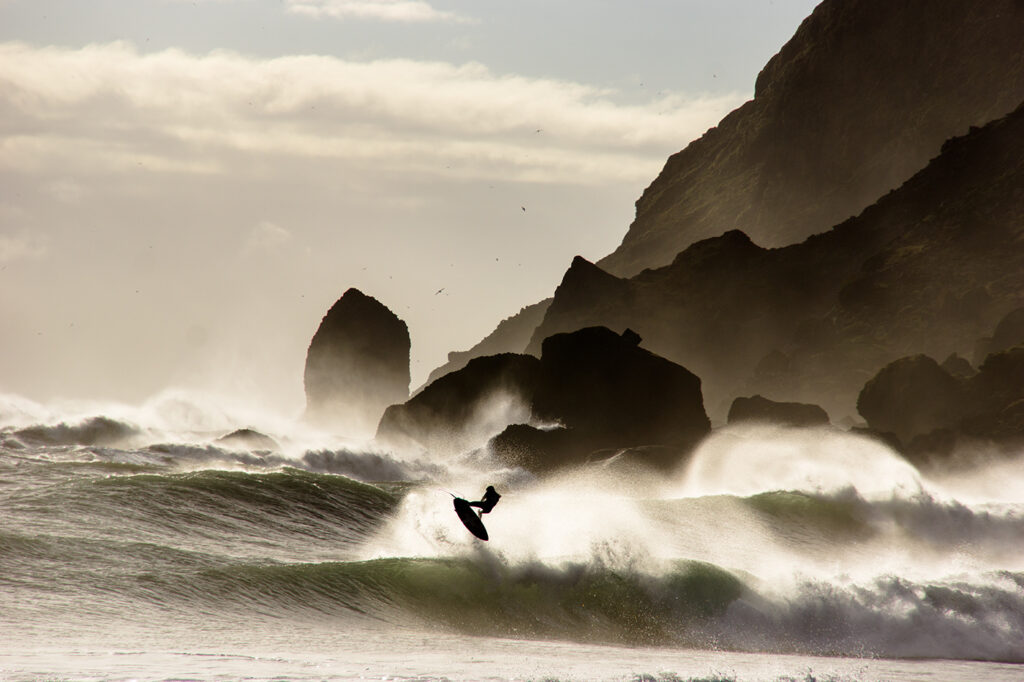
Where did your sense of exploration come from? Growing up in California, it is a place that is well and truly mapped, right?
Well, that was part of it. It was a cultivated world and I wanted to see what was outside of my small town and get out of there. I wanted to know the world and a camera was a tool and my passport to do that. And, obviously, that has evolved over the years, but that elemental drive remains.
Is it hard now to find that next image or project that both inspires you and inspires other people? How do you progress yourself, whether it’s your photography or your career?
I try to distance myself from the expectations of others, and even dull my own. The world is a big place, and there is inspiration in revealing it and helping to protect parts that have inspired me. That sense of wonder and awe of the natural world has led me to where I am now. I’m probably best just to keep on that path.
And where do you think this connection is eventually going to take you? Have you got a plan for it? Or do you think the hold that Iceland has over you will remain this strong?
I don’t have that answer. I just try to follow my nose. I see that the rest of the world is maybe trying to set themselves up for the future and to be safe and smart. I’m all for that and I understand it, but I don’t think that that’s the way that I’ve ever wanted to live, and I don’t think that’s the example I’ve ever wanted to set for my kids. Like, hey, guess what? It’s not easy to start again from scratch. I’m lucky to have worked really hard, but now I find myself 20 years into my career having to work really hard again and that’s a crazy proposition for somebody who had it all set up in California. I had a killer ranch, I had my office. I owned both buildings and life was great. We were just plugging away, doing work, happy enough, and now, for some reason, we are out here. I just felt a little sedentary in my life and I wanted to pursue something a little bit more expansive.
It’s a bold move.
Well, maybe, I’d like to see it as just being more open-minded. I’m just trying to take my own advice and swallow my own medicine. That’s a hard thing to do at times, especially the more comfortable we get, the more set in our ways we get. It’s so challenging to make a real deviation. But I think it just comes back to what we said in the beginning. When you find a real connection, it seems madness not to fully explore it. Even if you’re not entirely sure where it will take you.
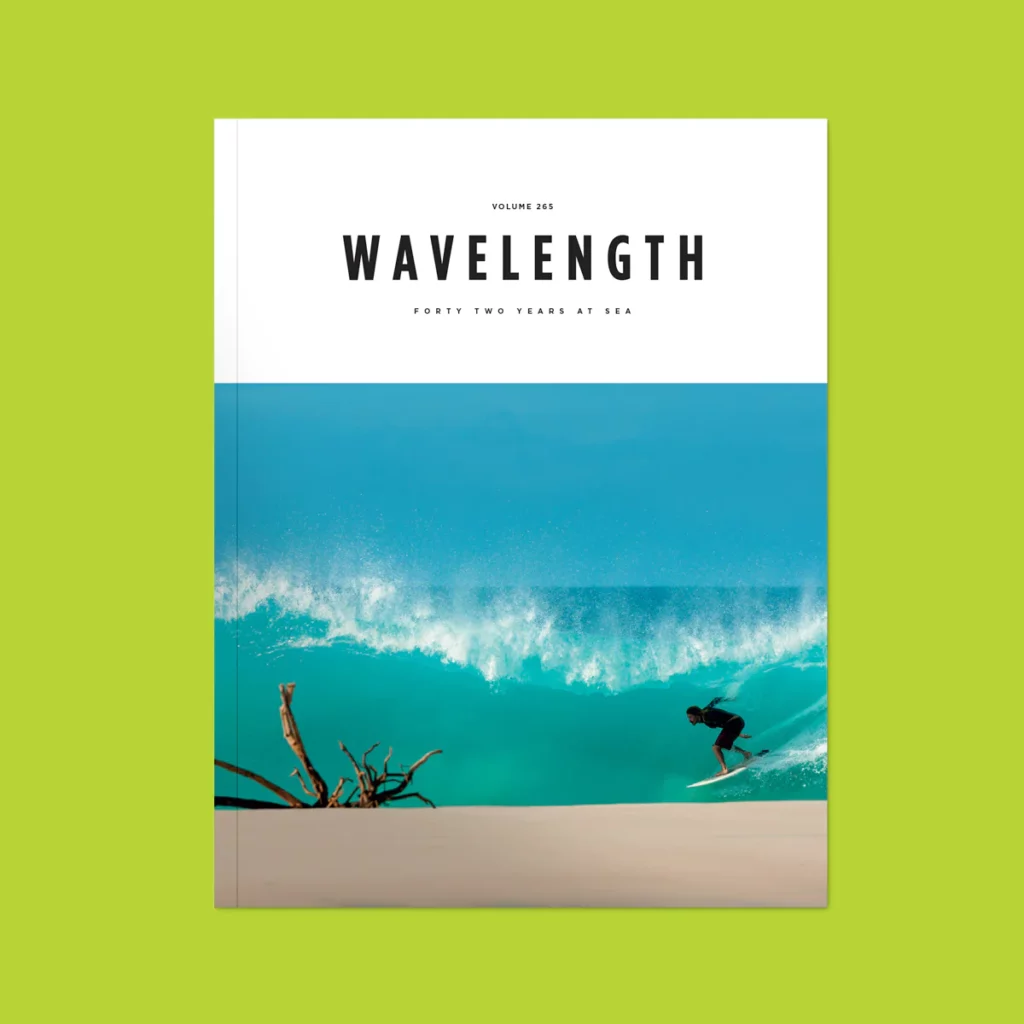
Want to get your hands on a fresh copy of #265? Wavelength gets delivered straight to your door either as a single edition or annual subscription.
